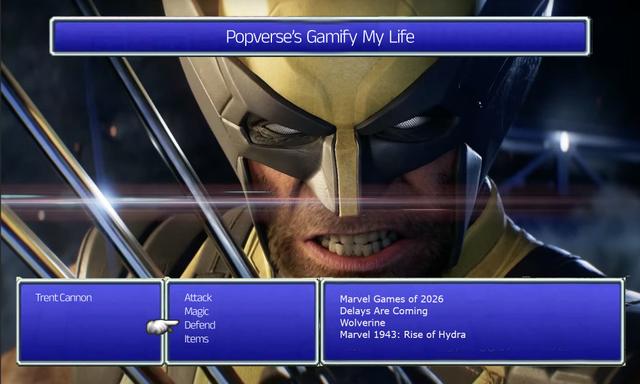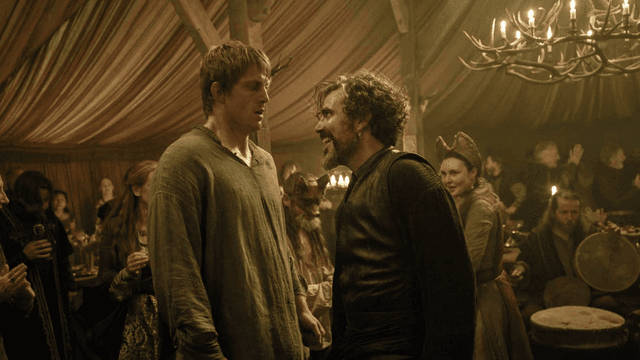If you click on a link and make a purchase we may receive a small commission. Read our editorial policy.
How do I comic shop?
Everything anyone would need to know about buying comics

You hit the cons. You watch the movies. You binge the shows - yet, the whole 'comic book' side of things has you a little…hesitant. Maybe you know where your local comic shop is and have even heard people talk about one, but you just haven’t taken that leap. Let’s get you leaping. The water’s fine.
The basics of comic shopping

A standard comic shop gets new comic books and graphic novels every week, along with toys, statues, and other collectibles, and a little bit of everything else. It’s a vibrant, constantly-changing place run by someone with a passion for the industry and the art form. Whether they admit it or are a little 'Comic Shop Guy' about it, they love this stuff. Yes it pays their bills, but there are a lot less stressful ways to make a living.
The different shades of comic shops
Just as there are a huge number of items a comic shop can sell, there are different types that cater to specific areas of the larger market. There will be those that focus just on the new monthly books without too much in terms of back issues or even graphic novels. Some shops deal mostly in graphic novels, and art books - slightly higher-end, more literary stuff. You also may find shops for whom monthly issues are a sideline, and the bulk of the floor and shelf space is taken up by toys or games. If you're lucky, you'll get a little from all those categories: monthly comics, a deep graphic novel selection, a healthy back issue stock, some toys, and some collectibles. Manage your expectations - if a store's name includes the words, 'Comics & ________', believe them. Generally speaking, full-service comics shops - those with a little bit of everything just have the word 'comics' in their name. Hopefully, your local shop is one you're comfortable with.
Alright - once you’re in the door, let’s start with comic books. There are so…many.
How do I know what’s new?
The issues that came out this week usually have some kind of indicator on them, occasionally with recommendations made by the staff. Issues surrounding the new comics are other series that came out this month, just not this week.
Most series ship a new issue every month, although some ship less frequently, while occasionally, series may bump up to biweekly, or weekly shipping.
Some of these issues have titles on them, some don't, and some have different covers, but they’re all the same issue. What’s going on?

Variant covers. Sometimes it may be just two different versions of the cover, or sometimes, it may be 25 or more. Variant covers are often released at certain ratios with less-common variants selling for more, due to scarcity. The store may have some on display for different prices, but if your retailer has multiple variants on sale for cover price, just buy the one you like the best.
How many copies does the store order?
It depends. An issue with a specific or new character or anticipated 'event' may see the shop owner order multiple hundreds of copies. But on the flip side, there are hundreds of comics that come out every month, and by sheer numbers, most stores don’t order most of the comics that come out each month. If you want to get a specific comic, you need to let your retailer know.
I’m not interested in single-issue comics books, really.
Graphic novels are what you’re looking for. The name has become a catch-all for collected storylines from regular series (also called trade paperbacks), to original work presented in a longer format. Your shop will have a selection of graphic novels, and will usually order anything you’re looking for, but graphic novels have their own release schedule, and not everything can be found in print all the time.
Wait - how does this business even work?

Each month, the owner, or employees in charge of ordering, combs through the catalogs of upcoming merchandise, and estimates how much of each item they can sell. It can be a well-informed guess or a guess made in blind faith, but when a comic shop orders a comic, they are buying that comic. It’s largely non-returnable, which makes comic shops different from the majority of magazine sellers like bookstores. The comic shop owns the comics they buy.
How can I be sure not to miss an issue?
Set up a pull list or subscription service. That means that each month, the shop will pull the issue of a specific series for you and hold it. Depending on your shop, you may be able to expand your pull list from series to all appearances by a character, or any miniseries with the franchise you’re after. For instance, Spider-Man has a few regular series, and a handful of guest appearances each month. On the other hand, both Stranger Things and Hellboy live in comics as a series of related miniseries. A pull list will make sure you get what you want, even if you can’t get to the shop each week.
But - the number one rule of pull lists - do not let it sit. Those are comics that you committed to buying, and the shop owner has paid for.
How do I know what’s coming out?

Catalogs. The main one up until recently is called Previews, and it’s about half a Bible thick. In the past few years, two other companies have begun distributing comics - Lunar Distribution (for DC, and other smaller publishers) and Penguin Random House (for Marvel, IDW, and other publishers) Each month, the catalogs from these distributors lists comics, toys, manga, games and virtually all other pop culture collectibles shipping in that month (or general timeframe). These catalogs are aimed at both the comic shop owners as well as consumers.
These three catlogs solicit three months ahead, meaning that the issues for November books is coming out in Augut.
When do new monthly comics and other stuff show up?

New DC comics show up on store shelves on Tuesdays, while Marvel and all other publishers’ books show up on Wednesdays. Generally, traffic in a shop will be the highest on Wednesdays.
What about the other stuff?
Diamond-shipped merchandise generally will hit on Wednesdays as well, but for other merchandise such as Funko Pops, models, action figures and others, there are no hard and fast rules. Check with your store if you’re looking for something specific.
What if I want a comic that’s not on my pull list and it's coming out next month?
You want to get your order in before the Final Order Cutoff (FOC) date. Tell the shop employees what you’re looking to get, and they’ll add it on. FOC is exactly what it sounds like - the last day the publisher will accept orders for the book. Publishers set their print runs for a comic issue based on how many they’re pre-sold through orders, and a set number on top of that. FOC is usually three to four weeks before the issue’s on-sale date.
hat if the comic sells out before I can get it?
Ask the employees - they may have already ordered more copies (coming in a couple of days or the next week), or, if the issue sells out to the point the distributor doesn’t have any more copies, the publisher may opt to go back to press and do a second printing which will be available in a couple of weeks.
I just want to read a good superhero story. What should I do?

Ask the employees. It’s in their interest to hook you as a regular, happy customer. If you’re new to the comic book side of things, it’s often best to start with a trade paperback that collects a storyline or time period. Trades are a bit to a lot more expensive than individual comics, but they’re designed to give you a full story, rather than the smaller bite of it that you find in a monthly comic.
Don’t be surprised if, when you ask for a recommendation, regular customers chime in and steer you towards a collection. Take their advice - these are the people that are passionate about the stories and characters. They tend to know what they’re talking about.
But superheroes are not my jam…
Don’t worry, you’re still in the right place. There are fewer and fewer comic shops that live by superheroes alone. Dig around, ask the employees and you’ll find that a good comics shop has tons of material for you. While graphic novels used to be the main place to find non-superhero stories, there are loads of monthly series without capes or tights to be seen.
There are comics in bags and long boxes here. Why?
Those are back issues of current or series that have ended, perfect for looking for a specific issue of a series, maybe something you remember as a kid. The price of back issues can vary widely. Non - 'key' issues - those without any major events or hot guest stars can go for $5 or less. If it’s an issue with a major event or revelation, the market will control the price. For example, comics featuring the first appearance of characters making it to TV or movies (for example, Gorr, the God Butcher in 2012’s Thor: God of Thunder #1) can jump in price - dramatically.
Wait - I have some old comic books, will my comic shop buy them?

That’s a solid maybe. Just because a comic is old doesn’t mean that it’s worth money and the shop can sell it. Think Pawn Stars - Rick would only buy something if he knew it had value and could be sold relatively quickly. On top of that - Rick would always want to sell it for more than he paid for it. Usually lots more.
That last part is important - if the shop buys your comics, that means they’ll sell for about twice what they paid. They’re not trying to screw you, they’re running a business. You’re the supplier, they’re the retailer. Have a lot of comics to sell? You may get an offer for the whole box, gems and rocks alike.
There are comic books in plastic cases here. What are those?
Comics in sealed plastic cases are said to be 'slabbed,' and have a numerical score, a report on their condition with any other important information on the case. You’re not meant to break the seal and read the book - that would cause hankie-clutching and ultimately, re-grading and re-slabbing.
Slabbed books have a higher value than unslabbed because the book is frozen in time. Its condition is locked-in. It’s moving from entertainment into collectible/investment.
Should I buy a couple of copies of certain issues that I think are going to be valuable someday?
Totally not what we’re talking about here, but there are many people who’ve made wads - fat wads of cash from speculating in comics. As with any kind of investing though, they’re the rare ones. The industry is filled with stories of retailers and collectors who had to dump cases of comics for pennies on the dollar because the book they bet on never delivered.
Buy comics because you like them and want to read them over and over. You’ll never go wrong that way.
Follow Popverse for upcoming event coverage and news
Find out how we conduct our review by reading our review policy
Let Popverse be your tour guide through the wilderness of pop culture
Sign in and let us help you find your new favorite thing.















Comments
Want to join the discussion? Please activate your account first.
Visit Reedpop ID if you need to resend the confirmation email.